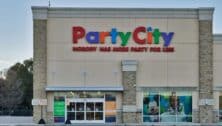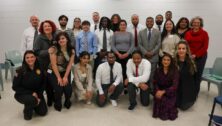Chester County Leadership: The Reverend Edmund K. “Ned” Sherrill II, Head of School, Church Farm School
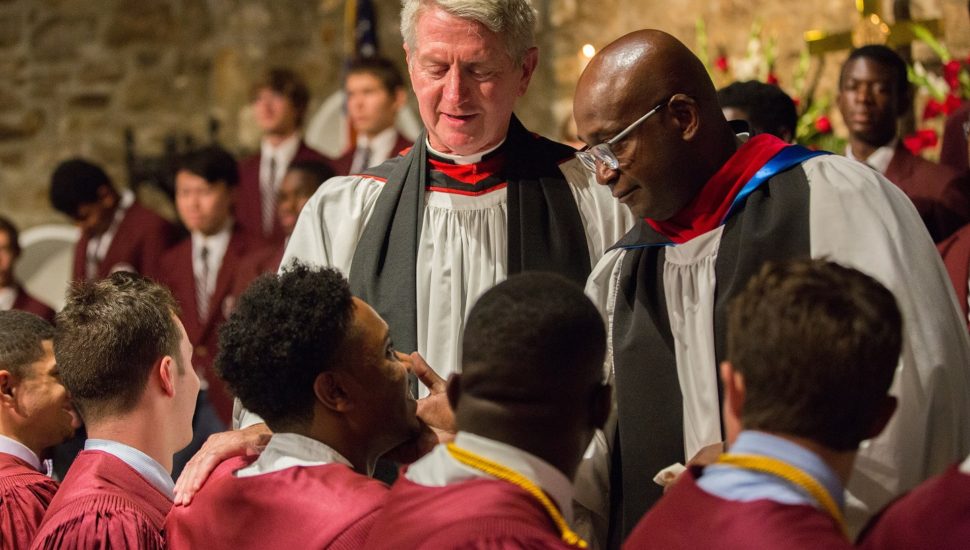
 As the Church Farm School in Exton prepares to celebrate its 100th anniversary this spring, The Reverend Edmund K. “Ned” Sherrill II, Head of School, spoke with VISTA Today about growing up in Dickenson, North Dakota; Ipswich, Massachusetts; and Brooklyn, New York; failing ninth grade, going to college in Minneapolis and landing an intern position with former Vice President Hubert Humphrey and then Humphrey’s wife Muriel when the Senator died of cancer in 1977.
As the Church Farm School in Exton prepares to celebrate its 100th anniversary this spring, The Reverend Edmund K. “Ned” Sherrill II, Head of School, spoke with VISTA Today about growing up in Dickenson, North Dakota; Ipswich, Massachusetts; and Brooklyn, New York; failing ninth grade, going to college in Minneapolis and landing an intern position with former Vice President Hubert Humphrey and then Humphrey’s wife Muriel when the Senator died of cancer in 1977.
Sherrill shares how, after denying the pull into what he calls his “family business,” finally decided on a career in the ministry and education, how he learned about the open leadership position at Church Farm School and how his school is preparing students, 80 percent of whom are African-American, to succeed at the nation’s top universities, including Penn, Princeton, Villanova, and Swarthmore.
Where did you grow up, Ned?
Well, my philosophy is we’re always on a journey to becoming more fully who we are, so, in some important ways, I’m still growing up!
I was born in Dickenson, North Dakota, where my dad had a mission church and we moved to Ipswich, Massachusetts, when I was two. My parents were both Bostonians and you could say that the Episcopal Church is our family business. My dad was a clergyman as were his brothers and even their sister married one, too. Their father was Henry Knox Sherrill, the bishop of Massachusetts and the Presiding Bishop of the Episcopal Church. My mother’s father was the dean of the Episcopal Theological Seminary in Cambridge, Massachusetts.
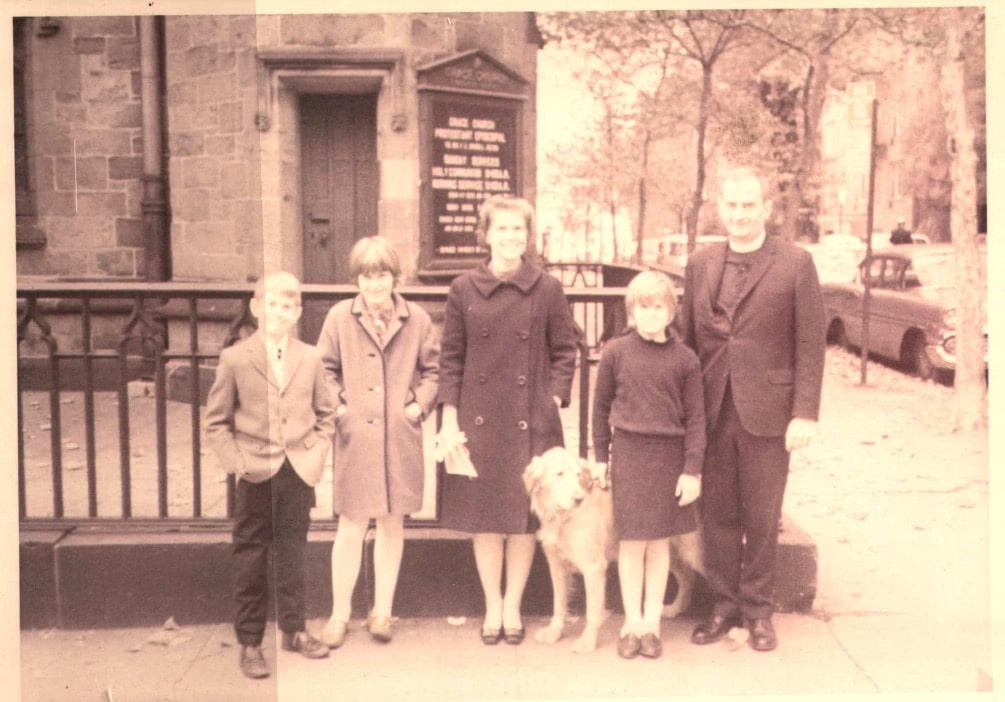
What memories do you have of growing up in either Dickenson or Ipswich?
None of Dickenson, but it’s in my blood so I’m rooting for Carson Wentz. Ipswich was great – something between a rural and suburban community – located on Boston’s north shore. I am fortunate to have David Updike – the son of John Updike, the well-known author and Pennsylvania native – as my childhood, and to this day, best friend. David and I rode our bikes everywhere and had a blast just being boys and trying new things. Tennis was a mainstay. My father’s being part of Dr. King’s march from Selma to Montgomery and subsequent efforts to help integrate Ipswich are particular memories of our family’s efforts to be agents of positive change.
Did your parents stay in Ipswich?
When I was 12, my parents moved our family to Brooklyn, New York. Living in Brooklyn was exciting and unnerving at the same time. Where in Ipswich I rode my bike everywhere, I had a hard time figuring out NYC’s subway system. One day, I got totally confused and came home an hour and a half late only to find my mother talking to two police officers about her missing son.
How did you adjust to moving around a lot, Ned?
Life for our family was centered around the parish, so moving didn’t seem that big of a deal although I do remember thinking at the time that, when I had kids, I wouldn’t move them as teenagers. It just seemed to be a precarious time to do it.
How did you do in school?
Up until ninth grade, I was doing well enough! Ninth grade, however, was a whole different picture. I basically flunked ninth grade, had a terrible year socially and ended up going to a boarding school in Danbury, Connecticut. That was my choice and the transition to a new school connected me to a larger sphere of people outside the city and ended up being a life-changing moment for me. The new school brought me back to green grass, baseball and a chance to be independent. It also put me in the company of great people from whom I continue to learn. I think that particular boarding school experience fuels much of what I hope the students at Church Farm School can experience here.
What sports did you play in high school?
I wasn’t a very good skater, so hockey was out. I enjoyed soccer and continued to play soccer in college, but my love is baseball. I liked its teamwork and was a catcher for my high school team. I liked having the whole game in front of me. Playing catcher, as the captain of the infield, gave me my first taste of leadership.
Did leadership come easily to you, Ned?
That’s hard to say, but as I think about it, I always liked helping people get into a successful spot and clarifying roles.
How did you decide what you wanted to do with your life?
Certainly, early on, the last two things I wanted to be in life were a minister since that’s what my father did, or a teacher, which is what my mother did. Who wants to do what their parents did? How boring! Of course, I ended up being both a minister and a teacher. How could I have been so blind to these two great professions!
Where did you go to college?
I originally wanted to go to Carleton College in Minnesota but ended up at Macalester College where my older sister was already enrolled. In the fall of my junior year, I still didn’t have a major. I signed up for a political science, a history and a religion course. I quickly dropped the religion course and had to find another class to fill the hole in my schedule. My advisor wasn’t available, so I walked into the office of a young political science professor with whom I had had a fleeting connection since my freshman year and asked him for help.
Looking back, that simple act was a big and important step. Thankfully, he remembered me, and after chatting for 15 minutes, he asked me if I would like to work for Hubert Humphrey, the former Vice President of the United States and the then Senator of Minnesota.
I interviewed for and got a job as an intern in Humphrey’s Minneapolis office, and political science became my major. While I never met the Senator in person, as he was ill at the time and would die later that year, I learned so much about helping people with their housing, farming and employment issues and how to leverage the system to benefit people in need.
When Senator Humphrey died in 1978, his wife Muriel was appointed by the Governor to serve out the rest of her husband’s term and I stayed on through that transition and into a special election to fill his seat.
But you didn’t stay in politics?
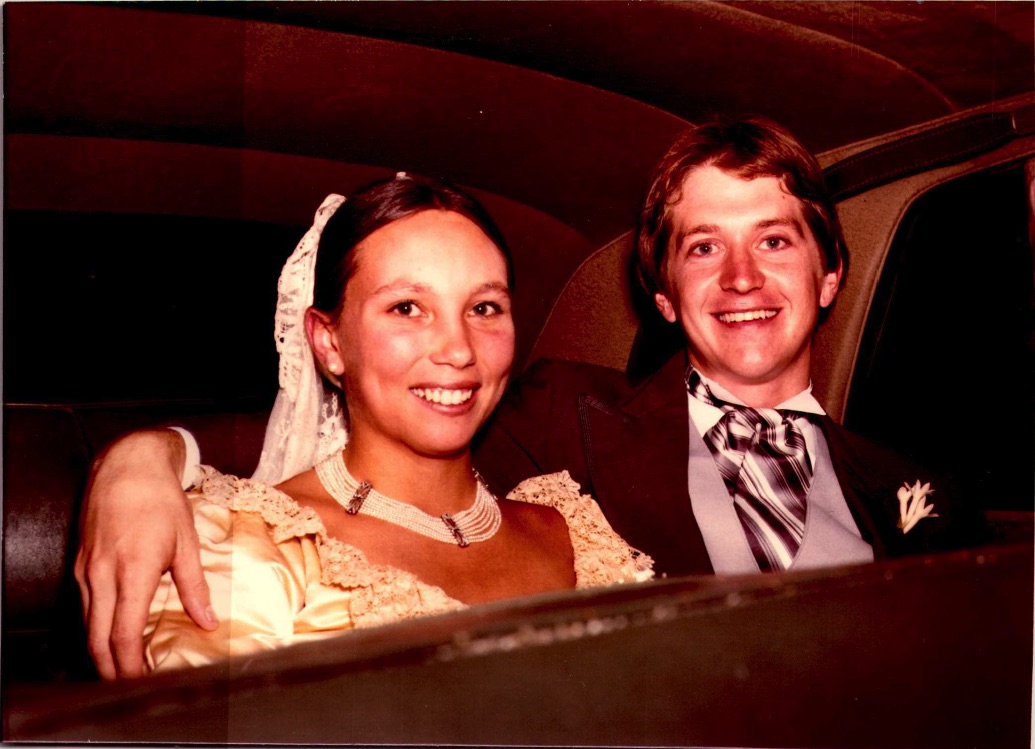
Turns out, aside from my major, my favorite subject in college eventually became my wife, Lizette, who was born and raised in Bryn Mawr! We both graduated from Macalester in May 1979 and were married three months later. After the special election, where the governor’s office and both US Senate seats went to our opponents, I spent the next year painting houses while looking for a lobbying job. When I couldn’t land the right job, we moved back to Philly and lived with my wife’s parents. I decided to go back to graduate school and was admitted to Yale Divinity School. It was time to dig into what my family was involved in on my own.
My inclination was not to be ordained but to get a degree, maybe even buy a little time until I could figure out what to do. Once I finished, a good friend who had helped me at Yale offered me a teaching position at St Paul’s, a private school in Concord, New Hampshire. I fell in love with teaching in a residential school and have stayed with it ever since.
How did you find out about the headmaster’s job at Church Farm School?
While at St. Paul’s, I was offered and took a job as headmaster and Vicar at an Episcopal school and church in Guam followed by a brief stint as a chaplain at a private Episcopal school outside of Boston. I wanted another shot at the headmaster’s position and heard about the opening at Church Farm School back here in home country. I applied and am grateful to be serving at such a vibrant and special place. It seems that everything I had experienced up to that point had prepared me for this role.
Even more special are our personal connections to Church Farm School—my wife’s sister got married in the school’s Chapel and The Rev. Dr. Charles Wesley Shreiner, the founder, married her parents at St. Paul’s Church, Exton.
Looking back, has your experience at CFS been rewarding?
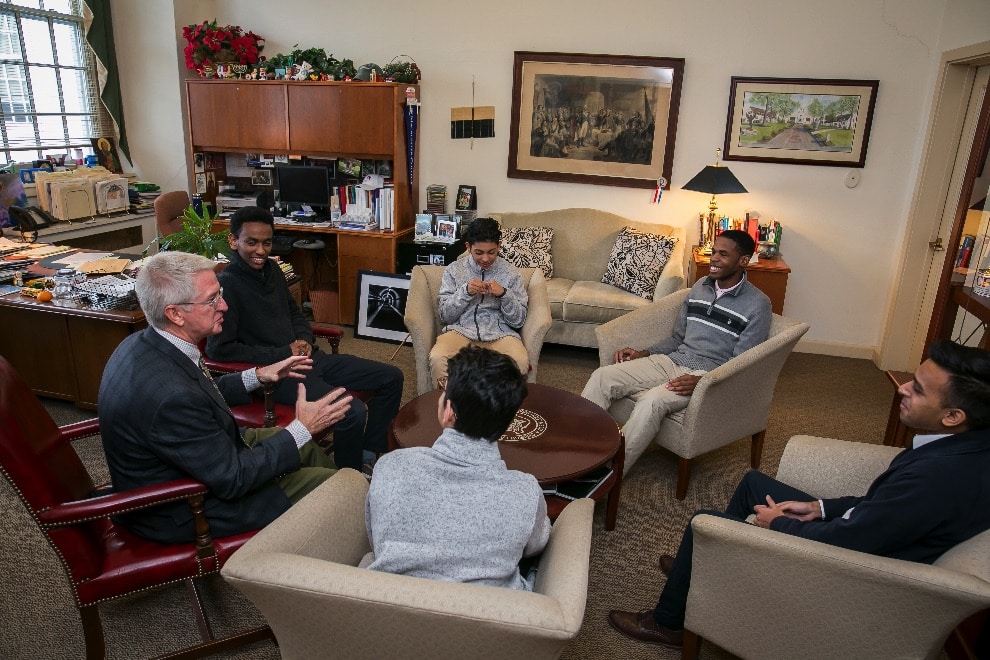 I’ve been at the Church Farm School for nine years, my longest continuous tenure at any of the schools where I’ve served. Church Farm School is one of the most unique schools in the nation, where for the past 100 years, we have been intentionally seeking out bright young men who have the character and the ability to be great students, but not necessarily the finances to attend an independent school where they can flex their wings and reach for their dreams.
I’ve been at the Church Farm School for nine years, my longest continuous tenure at any of the schools where I’ve served. Church Farm School is one of the most unique schools in the nation, where for the past 100 years, we have been intentionally seeking out bright young men who have the character and the ability to be great students, but not necessarily the finances to attend an independent school where they can flex their wings and reach for their dreams.
So, if vocation is the intersection between the world’s deepest need and a person’s greatest joy, then all of my training and experience have come together at the Church Farm School. While the work is demanding, it is really fulfilling and much more of a lifestyle than a job. It just doesn’t seem possible nine years have already gone by.
As you look into the new year, what are your greatest opportunities and challenges?
We may look different than we did 100 years ago, we’re not a farm anymore, but our mission remains the same: to help each student develop his God-given talents and earn a seat at the decision-making table within his chosen profession. When they graduate, each boy leaves with confidence and greater ability to lead and to serve. They are getting into some of the top colleges and universities in the nation, which is very special to witness and celebrate with them.
The Gospel teaches us to love our neighbors as ourselves and I dare say we truly love who these boys are and what they can become if only given the right support. The miracle of Church Farm School is that so many men and women in Chester County and along the Main Line over the years have supported the school and given our kids a chance.
Now, we look to a new generation to partner with us to offer fulfilling and meaningful experiences to outstanding young men who, in turn, are willing to pay it forward by working hard and giving back. We are eager to start our second century on this campus, and hope more of the community will get to know us. It’s such a lift when you visit and feel the energy of the students and faculty, and you see people living out the core Gospel concepts of loving kindness and generosity toward one another.
How are you preparing your students for college?
Colleges and universities are drawn to our kids because our students have attended a boarding school and have developed greater intellectual ability along with the independent study skills that fuel lifelong learning. We also have a fantastic college guidance program that helps families—many completely new to the college admissions process—navigate the intricacies of financial aid and best fit.
Oliver Scholars out of New York City just named us their Partner School of the year, perhaps since two boys received full scholarships to Brown and Yale respectively. We are quite proud of all our students who are doing so much with the opportunities they are afforded at Church Farm School.
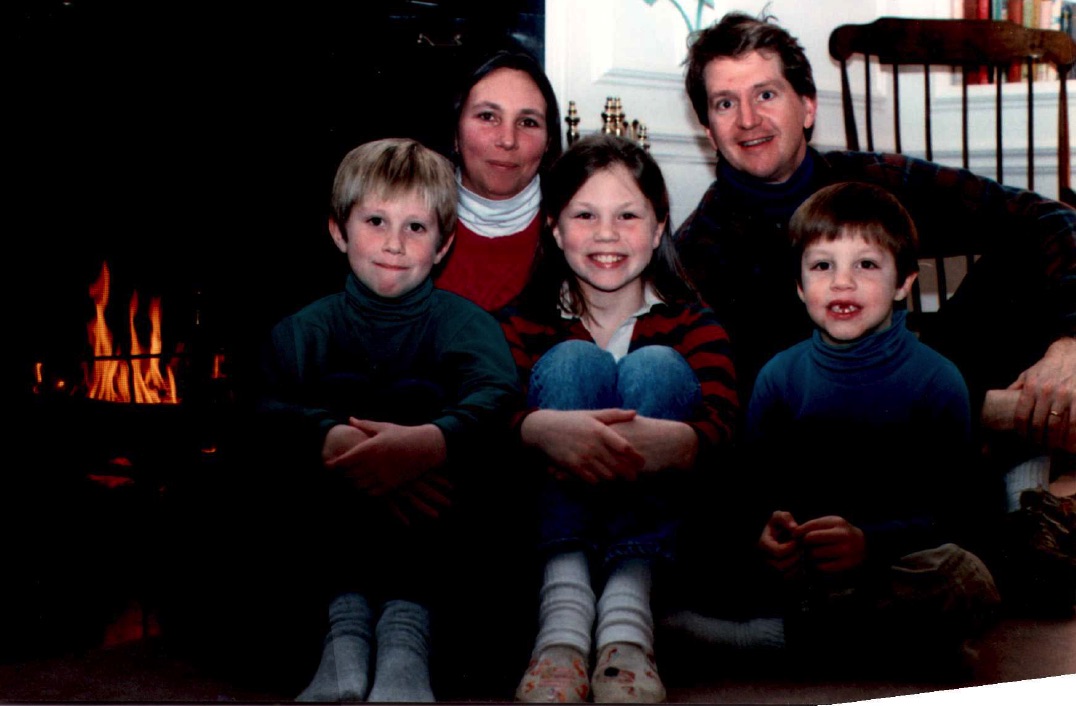
Finally, Ned, what is the best piece of advice you’ve ever received?
Over the hearth of a fireplace in a former school dining room was the phrase, “Strive mightily, but eat and drink as friends.” When I headed off to Guam, the retired CEO of Aetna, who happened to be my parents’ neighbor, advised me to hire good people, let them exercise their talents and take care of them. I had a sense of what he was telling me, but the experience of living the reality of that advice is different and it is really a privilege to do so.
I don’t worry about the small stuff, in fact, I know sometimes we’ll even fail mightily at attempting some of the big things. But by complimenting the school with good people, I’ve remained confident we’ll inevitably be successful. By building strong relationships, giving talented people the tools and support they need, we’ve been able to meet just about any meaningful challenge, all the while becoming stronger friends along the way.
Connect With Your Community
Subscribe to stay informed!
"*" indicates required fields


































![95000-1023_ACJ_BannerAd[1]](https://vista.today/wp-content/uploads/2023/03/95000-1023_ACJ_BannerAd1.jpg)












